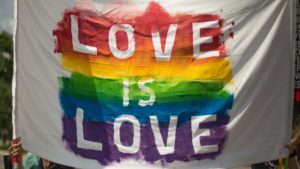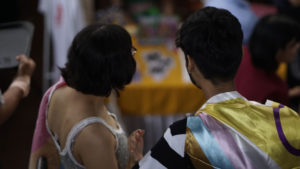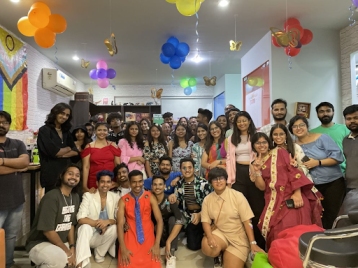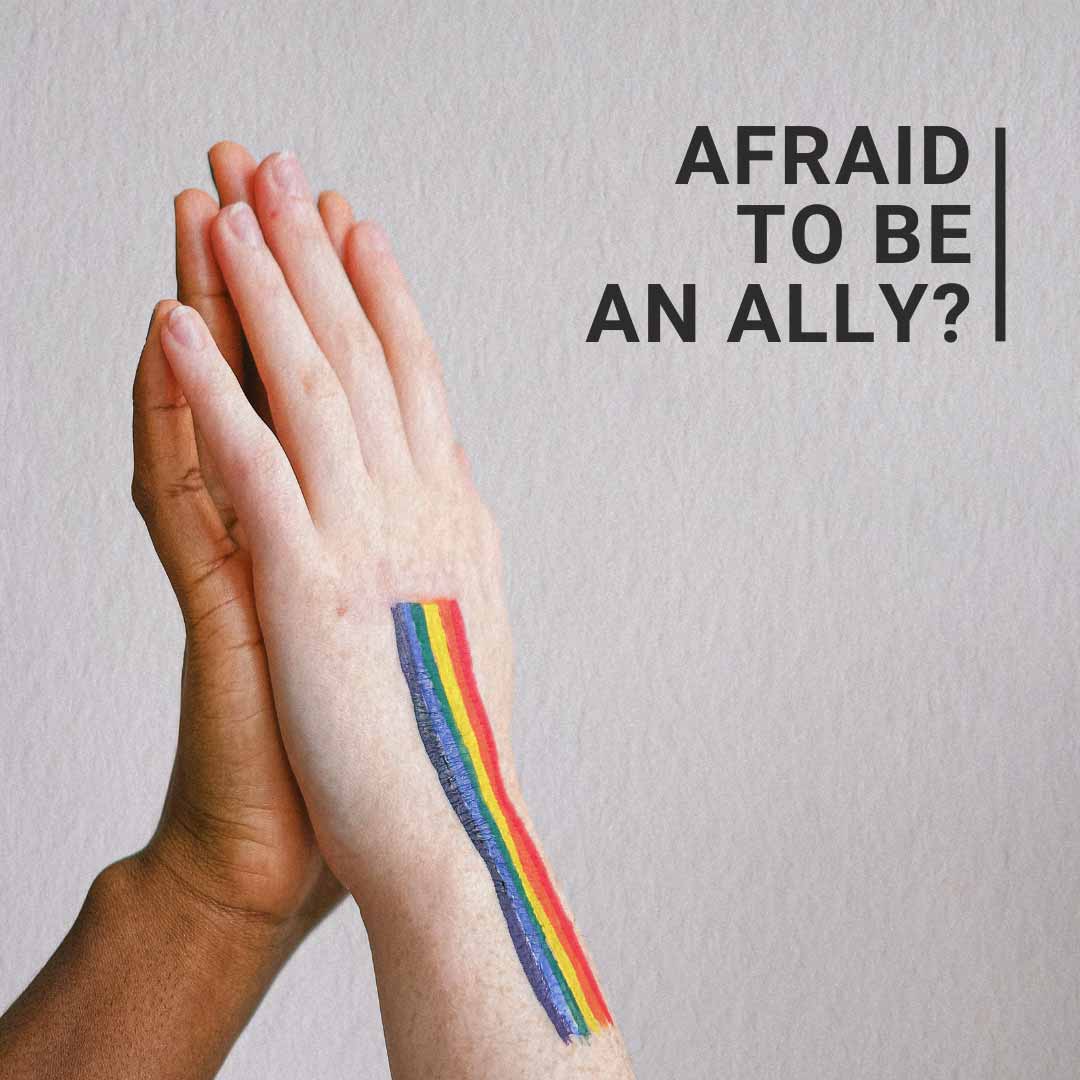CATEGORIES
#Breaking Stereotypes #DEI #LGBTQIA+Overview:
- The LGBTQIA+ community continues to face erasure, alienation, and hostility around the world.
- A mix of myths and society’s backlash towards allies keep people from advocating for their queer friends and family.
- Reasons like being called too aggressive, making mistakes, being religiously shamed, or having their sexual orientation questioned gatekeeps people from being allies.
- However, all these fears can be worked on through fact and reason.
- Our one small act of calling a homophobic comment out can go a long way in creating a better world.
Not so long ago, being LGBTQIA+ was a crime in almost all countries around the globe. While most countries have finally started to progressively revoke such outdated laws, the LGBTQIA+ community continues to face social erasure, alienation, and even outright hostility. When bringing the structural change in constitutions involves such a long struggle, changing the societal mindset will take a longer time and even harder effort.
While trying to bring such a change, the problem—beyond people who are against the community’s inclusion—is the indifference amongst the wider population. When people fail to care about a societal issue, like that of safe identity or autonomy for all, until it is a personal concern, the burden of changing the system of oppression continues to fall on the oppressed.
Despite the growing woke culture, many individuals who may essentially be supporters of the LGBTQIA+ community are afraid to speak up for fear of the backlash they might face. A mix of myths and the actual reactions of society towards allies keep people from being vocal supporters or advocates for their queer friends and family.

This article discusses some of the fears gatekeeping cis-heterosexual people from being open allies for LGBTQIA+.
Bisecting the HomoPHOBIA: Why Cis-Het People May Be Afraid of Being Allies
1. Questions raised about your sexual orientation.
Too often, when someone vocally supports the LGBTQIA+ community, the people around assume the ally is also queer — as if cis-het people could not simply be supportive of others while being themselves. The real test of your allyship, however, might precisely lie in how one responds to such an assumption. Do you get offended?
To truly make an inclusive society, we all need to internalize the basic fact that queerness, as paradoxical as it may sound, is normal and, hence, someone assuming you to be LGBTQIA+ is not an insult. Further, one needs to explore their sexuality and identity. This will lead to them being comfortable and secure with their identity—even as a heterosexual—and not getting affected by an assumption otherwise.
2. Being reprimanded as angry for being a vocal ally.
Or maybe as too aggressive, or accused of creating issues for no reason. This may particularly be the case if you call out a homo/bi//transphobic joke or “normal” comment in a peer group. Using someone’s identity as an easy source of humor does not make a derogatory joke funny.
Such jokes are not just that, but rooted in deeper and subconscious mindsets of discrimination. If you are afraid to be a vocal ally, remember that calling out a wrong remark is the hardest, but the right thing to do.
3. Being labeled a “white knight” and losing privilege.
Often, when a person who is more socially privileged attaches themselves to a lesser privileged group, society will stop bestowing the ally with privileges as well (because why extend the privilege when you can reduce it?) On a simpler note, someone may call you a white knight or advocate, not in a positive manner, and accuse you of just looking for a bit of fame.
And yet, the system of privileges and stratifying society as such is inherently wrong. It puts people who are made equal into different groups by virtue of their birth. So it indeed does become a responsibility of those placed favorably to extend their power to uplift the underserved. Regretfully, your privileged voice will matter more in the hierarchy, so use it wisely.

4. You are afraid of making mistakes.
Do you want to be an ally and speak up but are afraid of saying the wrong things? Perhaps you don’t want to offend your queer friends. We need to understand that making unintentional errors as we unlearn years of patriarchal and cis-heteronormative conditioning is okay.
The only cure to that is being genuine about accepting mistakes when you make one. Instead of being defensive, humbly try to correct your errors. To be a good ally, try to learn more yourself, read, research, and make an effort to be aware.
5. Being religiously or morally shamed.
You may be a deeply religious person or someone with a profound faith and might be afraid of supporting the LGBTQIA+ community because it goes against your religion—or your community will at least question your support. Yet, the fact remains that all religions preach love and empathy for all beings.
So being kind, accepting, and supportive of another human is the right thing to do religiously as well. While your more orthodox friends may not accept this, sometimes it’s best to turn a deaf ear and practice your religion—and other values—as personal beliefs which only you construct, uninfluenced by others who claim to know better.
There may be many other reasons or hesitations for you to not be an ally. But more often than not, some simple research and introspection will compel you to be one, because it is the natural and human thing to do. LGBTQIA+ people have faced undue hostility and erasure for no logical reason for far too long, and it’s time we stand up to end it.

We never know who our allyship gives hope to—for most of us have a loved one who identifies with the community but is too afraid to be themselves or come out because of how they think you might react.
Conclusion:
To make an inclusive world, where everyone—LGBTQIA+ people and other stigmatized communities such as people with disabilities or racialized communities—feel safe and happy, we all must consciously work to end bigotry and institutional discrimination. Our one small act of calling a homophobic comment out can, and will, reflect in creating a society with more love, acceptance, and respect.



